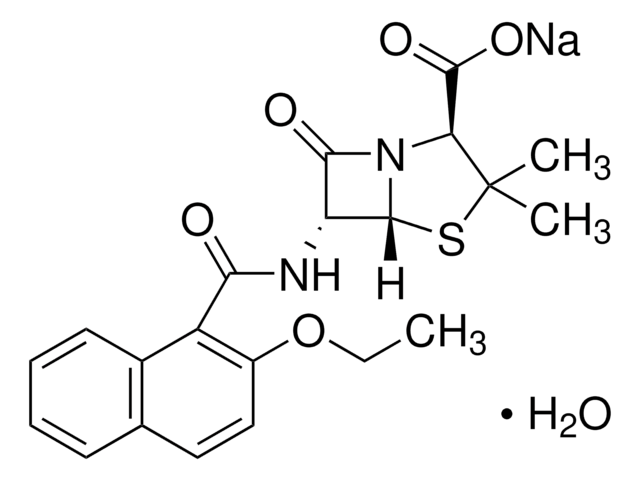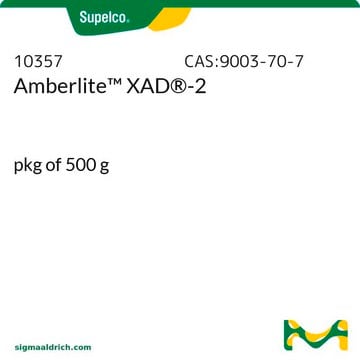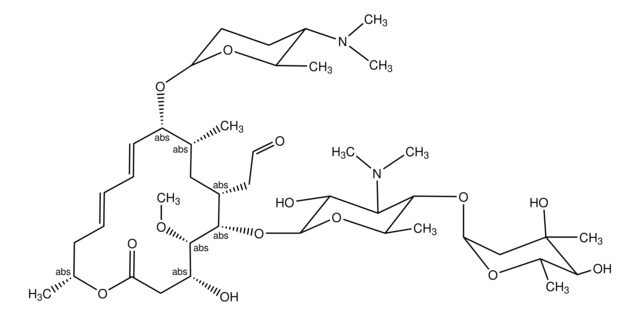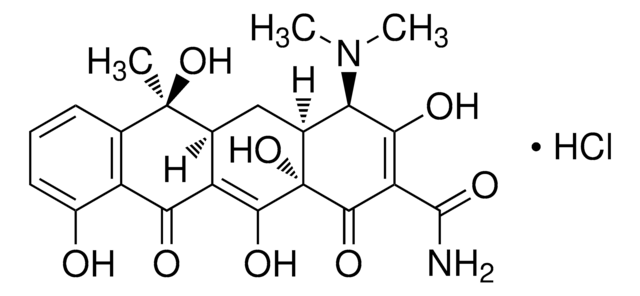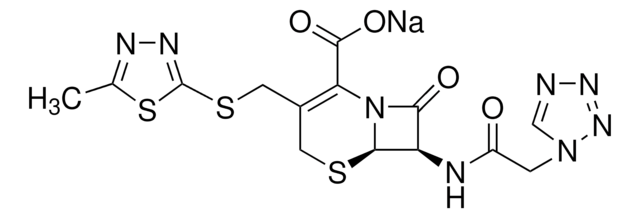32071
Nafcillin sodium salt
VETRANAL®, analytical standard
Synonym(s):
(2S,5R,6R)-6-{[(2-Ethoxy-1-naphthalenyl)carbonyl]amino}-3,3-dimethyl-7-oxo-4-thia-1-azabicyclo[3.2.0]heptane-2-carboxylic acid sodium salt, 6-(2-Ethoxy-1-naphthamido)penicillin sodium salt
About This Item
Recommended Products
grade
analytical standard
Quality Level
product line
VETRANAL®
shelf life
limited shelf life, expiry date on the label
technique(s)
HPLC: suitable
gas chromatography (GC): suitable
application(s)
clinical testing
format
neat
storage temp.
2-8°C
InChI
1S/C21H22N2O5S.Na/c1-4-28-13-10-9-11-7-5-6-8-12(11)14(13)17(24)22-15-18(25)23-16(20(26)27)21(2,3)29-19(15)23;/h5-10,15-16,19H,4H2,1-3H3,(H,22,24)(H,26,27);/q;+1/p-1/t15-,16+,19-;/m1./s1
InChI key
AYAPZOUDXCDGIF-FRFVDRIFSA-M
Looking for similar products? Visit Product Comparison Guide
General description
Application
Legal Information
signalword
Danger
hcodes
Hazard Classifications
Resp. Sens. 1 - Skin Sens. 1
Storage Class
11 - Combustible Solids
wgk_germany
WGK 3
flash_point_f
Not applicable
flash_point_c
Not applicable
Choose from one of the most recent versions:
Already Own This Product?
Find documentation for the products that you have recently purchased in the Document Library.
Customers Also Viewed
Our team of scientists has experience in all areas of research including Life Science, Material Science, Chemical Synthesis, Chromatography, Analytical and many others.
Contact Technical Service
